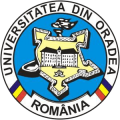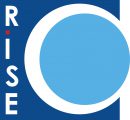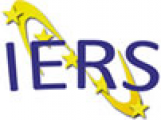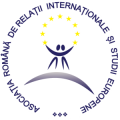Key staff member
Senior lecturer at the Department of European Studies and International Relations, University of Oradea, she holds a PhD in economics. She is director of the Institute for Euroregional Studies (Jean Monnet European Centre of Excellence) and coordinator of the Master program in Regional Development and Institutional Communication in EU.
She was the academic coordinator of the Jean Monnet European Module “Mass-Media and Intercultural Dialogue in Europe without Borders” (2007-2010) and member of the key staff in Jean Monnet European Module ”The evaluation of Cross-Border Cooperation at the frontiers of EU” (2014-2017). Also, she coordinated the Leonardo da Vinci project entitled “Skills Improvement for the Romanian Students as Future EU Civil Servants” having University of Alicante (Spain) and University of Brescia (Italy) as partners.
She is editor of Eurolimes (Journal of the Institute for Euroregional Studies), volumes: 3/2007 (Media, Intercultural Dialogue and the New EU Borders), 8/2009 (Europe and its Economic Frontiers), 12/2011 (Communication and European Frontiers) and 25/2018 (Territorial Marketing at the European Borders). Her scientific interests are focused on international and regional economics, international communication and negotiation and regional marketing.
Relevant publications:
„The Role of the Economic Borders in Contemporary International Relations” (in collaboration with Constantin-Vasile Țoca), in Studia Universitatis Babes-Bolyai – Studia Europaea, Issue no.2/2017, pp.121-134
Abstract: In order to adapt to the new context created by globalization, borders have got a dynamic sense, losing some of their traditional functions and acquiring new roles, which transform them from barriers to fluid and permeable lines. Thus, they delimit a space permanently reconstructed by interdependencies and interactions of its members, contributing to the shaping and development of new regions in international relations.
„European Integration and the New Frontiers of Europe”, in The European Space. Borders and Issues (eds.Mircea Brie, Alina Stoica and Florentina Chirodea), Debrecen University Press, Debrecen, ISBN 978-963-319-609-4, pp.347-358, 2016
Abstract: The research perspective considering the region as the growth nucleus in contemporary international relations, is part of “new regionalism”. Regarding the actors involved in the regional process, if the nation-state played the main role in case of old regionalism, the new regionalism entails actions and interactions of several players, such as regional and local authorities, civil society, along with actors in the business world and non-governmental organisms.
„Regional Branding: Tool of the New Public Diplomacy, in Culture and Paradiplomatic Identity. Instruments in Sustaining EU Policies, (eds. Alina Stoica, Ioan Horga and Maria Manuela Tavares Ribeiro), Cambridge Scholars Publishing, Cambridge, ISBN 978-1-4438-9734-2, pp. 234-248, 2016
Abstract: The New Public Diplomacy uses a multitude of tools and actors in order to create and improve the image of one country on the international scene. Besides governments, there are other entities, at national or regional level, that can engage in public diplomacy. In our opinion, the regional branding represents a very good instrument of the new public diplomacy that involves not only defining the regional identity, but also creating brand awareness both with the citizens of the territory and versus external actors.
„The EU’s Voice beyond its Borders: the European Union’s External Communication” (in collaboration with Ioan Horga), in CES Working Papers – Volume VIII/2016, Issue 3, pp. 490-504
Abstract: The paper analyses the external communication of the European Union (lines of action, actors involved, and communication realized through different policies) and how it affects the external image of the region, demonstrating the need for a coherent communication strategy that combines the interests of Member States with those of the European institutions and the needs of internal public with those of external public.
„Region – engine of growth in global economy”, in Transylvanian Review, Vol. XXIV, Supplement 1/2015, ISI indexed journal, pp. 33-44
Abstract: Globalization changes the role of the border and creates new forms of regional cooperation and development, arising from the need to create development opportunities and to enhance international competitiveness of states. The region represents in this context a pole of growth not only adapted to strong economies, but also to countries in development, seeking solutions to annihilate the effects of the global crisis and to globally increase their competitiveness.
„Economic Transition in Romania: A Completed Process?” (in collaboration with Ioan Horga), in Societies in Transition. Economic, Political and Security Transformations in Contemporary Europe (eds. Savvas Katsikides and Pavlos I. Koktsidis), Springer International Publishing, Switzerland, ISBN: 978-3-319-13813-8, pp. 87-110, 2015 Abstract: The concepts of „transition economy” emerged two decades ago, with the changes in political regimes in Central and Eastern Europe. It has generated a number of analysis and investigation in all fields, while people have associated it with the economic and social difficulties which had to be faced in order to reach a better standard of living, offered by the „saving” market economy.






